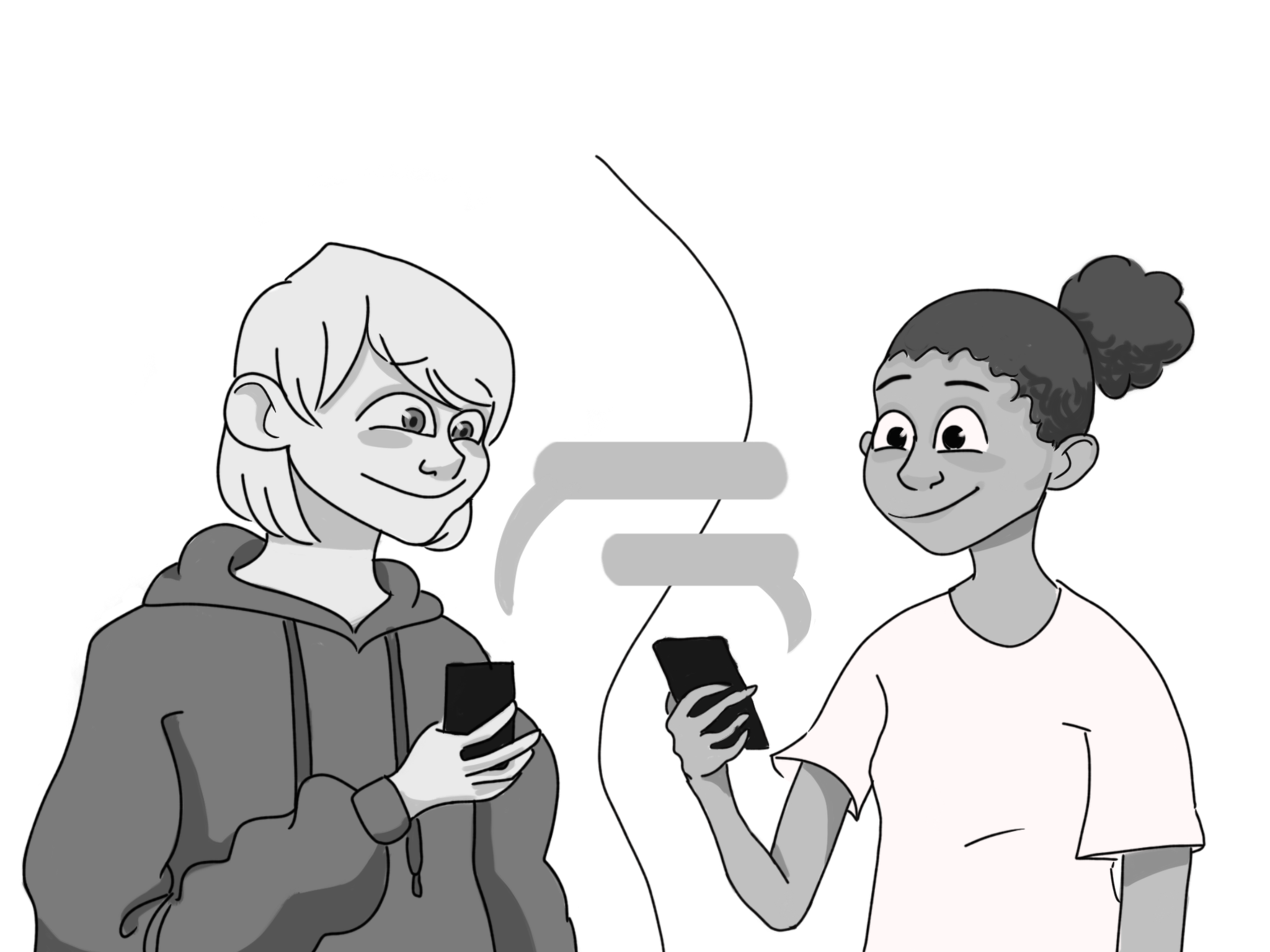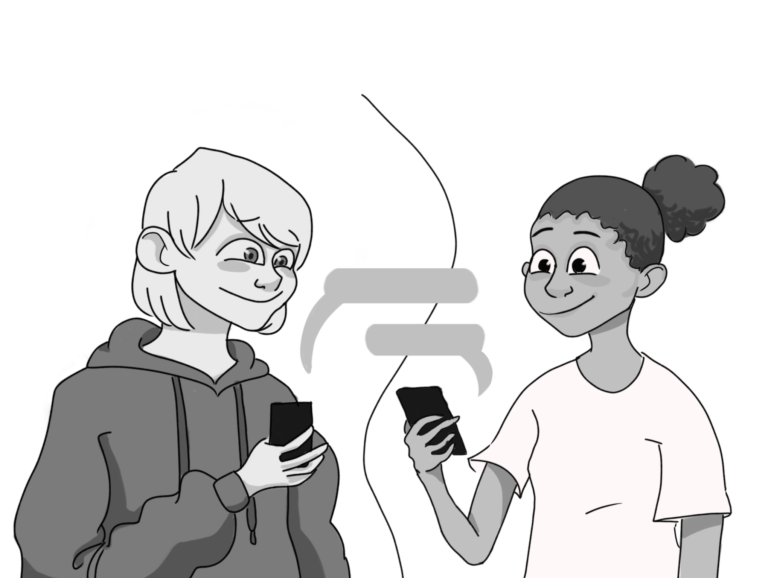

When we were young, adults would constantly warn that people on the internet are all dangerous. However, as the use of social media and the internet increased,
more and more people have made friends through online social networks.
Sophomore Sam Blount met their internet friends through common interests online on platforms such as Twitter, Tumblr and Instagram.
“We got along really quickly, and that’s how I made one of my best
friends”
“I have a lot of interests I’m really passionate about, and when you go onto social media you can find a lot of other people like that,” they said. “I just got put in a group chat with people with a lot of the same interests, like music and TV shows; we all got along really quickly, and that’s how I made one of my best friends.”
The use of the internet has allowed Blount to connect to people all across the world from Slovakia to Peru to Spain.
Blount feels communication through the internet allows easier connections that can develop into friendships.
“[People are] a lot easier to talk [to] in the beginning because what happens online is that people just take down their barrier that they have when talking with people that they already know,” they said. “It’s a lot easier for them to just get into what they love … so it’s easy to connect over something.”
The internet has allowed and increased the potential for new- er generations to make friends across the world. According to Pew Research Center, 57 percent of teens between the ages of 13 to 17 have made friends through the use of the internet.
Although online friends allow meeting people that one may never have met otherwise, some users are skeptical. While social media sites such as Instagram, Reddit and Twitter have made it increasingly easier for teens to communicate with people of different backgrounds, online anonymity creates a potential risk.
“I know there are catfishes out there, but a lot of people think everyone is a catfish,” Blount said. “A lot of people online are online just to find other people that they have similar interests with. I used to think of people online as just old men, but when I went online, it’s quite the opposite. Everyone is just different and there’s so much more diversity that you find online.”
Similarly, sophomore Albena Goulisheva acknowledges the dangers of internet friends.
“Some people might think [internet friends] are some creeper, some old man behind the camera,” she said. “You should really only make friends online if you know for sure if they’re real people and that they exist.”
Goulisheva feels that the ability to control what one presents online is a key aspect of real-life communication that online communication cannot replicate.
“You never know [people on the internet’s] real personality or how they would really talk or the things they think about,” Goulisheva said. “There’s not a lot of dimension to text, so you just never really know what they are really thinking.”
Sophomore Catherine Lei met her friend on Instagram through their mutual like for J.Cole and finds that being cautious when you first meet a potential online friend is essential.
“You should definitely be cautious, especially on the internet because it’s a really, really easy to cat sh people,” she said. “When you’re cautious, and you know what’s happening and you guys are both aware of the consequences and are truthful, then [online friendships] could work.”
With new technological advances, the concept of online friends and the methods of developing friendships has begun to expand and change. The increasing number of people making friends online has begun to change the stigma around talking to strangers online and may change the future of what it means to be a friend.







Helped a lot